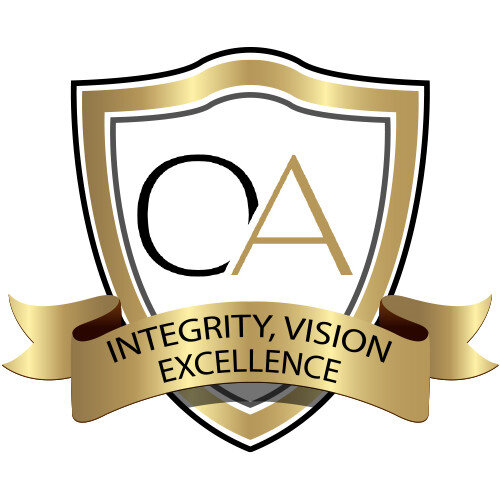Best Sanctions & Export Controls Lawyers in Durban
Share your needs with us, get contacted by law firms.
Free. Takes 2 min.
List of the best lawyers in Durban, South Africa
About Sanctions & Export Controls Law in Durban, South Africa
Sanctions and export controls are legal requirements that regulate the movement of goods, services, technology, and currency across South Africa's borders. In Durban, as a bustling port city, these laws play a crucial role in international trade, ensuring compliance with both local and international regulations. Sanctions are restrictive measures imposed by the South African government or foreign bodies, typically to maintain international peace, security, or to achieve foreign policy objectives. Export controls, on the other hand, are laws governing the export of sensitive goods, such as military equipment, dual-use technology, or sanctioned items. Failure to comply can lead to severe penalties, loss of business licenses, and criminal charges.
Why You May Need a Lawyer
Several situations may warrant the need for an experienced lawyer in the area of sanctions and export controls in Durban. If your business is involved in international trade, shipping, or logistics, you may encounter regulations that restrict trade with certain countries, individuals, or organizations. Legal advice becomes essential when navigating complex paperwork for export permits, responding to customs seizures, or facing government investigations related to alleged breaches of trade restrictions. A lawyer will help you interpret South Africa’s laws and international agreements, assist with risk assessments, prepare compliance programs, and represent your interests in case of inquiries or disputes.
Local Laws Overview
In Durban, South Africa’s key legislation concerning sanctions and export controls includes the National Conventional Arms Control Act, the Non-Proliferation of Weapons of Mass Destruction Act, and various regulations administered by the Department of Trade, Industry and Competition. South Africa is also a member of several international export control regimes, such as the United Nations Security Council and the African Union, whose sanctions and controls are domestically enforceable. Local authorities, particularly customs officials at the Port of Durban, enforce these laws and monitor cargo entering or leaving the country. It's important for businesses and individuals to ensure proper licensing, due diligence, and documentation for all exports or imports.
Frequently Asked Questions
What are sanctions in the context of Durban, South Africa?
Sanctions are governmental restrictions or prohibitions on trade, finance, or diplomatic relations with certain countries, entities, or individuals, often for political, security, or humanitarian reasons.
What is covered under export controls?
Export controls regulate the transfer of specified goods, technology, software, and even knowledge, especially those with potential military or strategic uses, to ensure they do not fall into the wrong hands.
Who enforces these laws in Durban?
Sanctions and export control laws in Durban are enforced by national agencies such as the Department of Trade, Industry and Competition, the South African Revenue Service, and the National Conventional Arms Control Committee.
Do I need a license for all exports?
Not all exports require a license, but items that are listed as controlled or restricted, and certain destinations, will require prior government approval.
What penalties can result from non-compliance?
Penalties include hefty fines, criminal prosecution, imprisonment, confiscation of goods, and loss of trading privileges.
How do international sanctions affect Durban businesses?
International sanctions restrict Durban businesses from dealing with blacklisted countries or individuals, affecting contracts, payments, and shipping routes.
Can I export dual-use goods from Durban?
Yes, but dual-use goods, which have both civilian and military applications, often require special permits and rigorous compliance with both local and international laws.
Is there a way to appeal a sanctions listing?
Yes, listed individuals or organizations may submit a request for review or delisting to the relevant government authority or international body.
What should I do if my goods are detained by customs?
You should consult a lawyer immediately, provide all requested documentation, and cooperate with the investigation to resolve the issue as quickly as possible.
How can I stay compliant with changing laws?
Regularly monitor government publications, participate in compliance training, and consult with legal experts to ensure your business remains up to date and compliant.
Additional Resources
For further information and assistance on sanctions and export controls in Durban, the following organizations can be helpful:
- Department of Trade, Industry and Competition - Handles export permits, trade regulations, and export control lists - South African Revenue Service (SARS) - Responsible for customs enforcement at all ports of entry, including Durban - National Conventional Arms Control Committee - Oversees controls on military and dual-use items - Non-Proliferation Council - Regulates nuclear, chemical, and biological weapons concerns - Durban Chamber of Commerce and Industry - Offers information and training on trade compliance
Next Steps
If you believe you need legal assistance regarding sanctions or export controls in Durban, start by gathering all relevant documentation related to your imports, exports, and any communications from authorities. Seek a qualified lawyer with experience in trade regulations or consult a law firm specializing in international trade law. Early legal advice can prevent costly mistakes and ensure your business or personal interests are protected. Stay informed about changes in legal requirements and consider implementing internal compliance programs to reduce risks. Do not attempt to navigate sanctions or export control matters alone if you are unsure - professional guidance is essential to remain compliant and avoid severe penalties.
Lawzana helps you find the best lawyers and law firms in Durban through a curated and pre-screened list of qualified legal professionals. Our platform offers rankings and detailed profiles of attorneys and law firms, allowing you to compare based on practice areas, including Sanctions & Export Controls, experience, and client feedback.
Each profile includes a description of the firm's areas of practice, client reviews, team members and partners, year of establishment, spoken languages, office locations, contact information, social media presence, and any published articles or resources. Most firms on our platform speak English and are experienced in both local and international legal matters.
Get a quote from top-rated law firms in Durban, South Africa — quickly, securely, and without unnecessary hassle.
Disclaimer:
The information provided on this page is for general informational purposes only and does not constitute legal advice. While we strive to ensure the accuracy and relevance of the content, legal information may change over time, and interpretations of the law can vary. You should always consult with a qualified legal professional for advice specific to your situation.
We disclaim all liability for actions taken or not taken based on the content of this page. If you believe any information is incorrect or outdated, please contact us, and we will review and update it where appropriate.

















